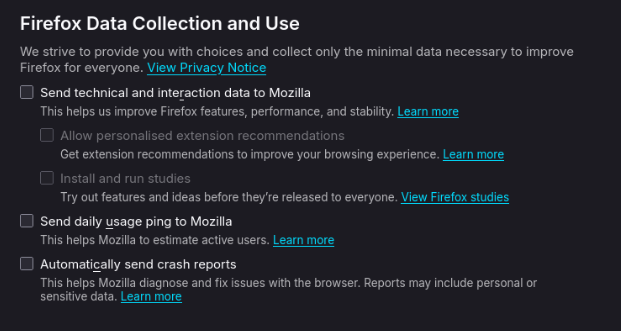It is.
Read it carefully.
Look at this wording carefully.
If you want to submit a form using Firefox, does Firefox need "nonexclusive, royalty-free, worldwide license" in order to comply with that submission?
No, it does not.
By wording it the way that they did; they give the illusion that they require license to the data you input when they do not actually need a license to it at all.
By wording it that way, they make it seem like you must agree to grant them license to your data in order for them to process the information you transmit. This is false.
They knew the wording; they knew exactly what it meant. This is not a mistake in communication.
And instead of removing that bit of license-grabbing; Mozilla is holding its feet planted firmly: They really want your data.
EDIT:
Put another way:
If GIMP had that ToS, then they would have nonexclusive royalty-free worldwide license to any image you artistically create on GIMP, under the deceptive and dubious claim that because you used GIMP to rasterize the data, that necessitates GIMP to need to hold licensing for your creation; that they now can use without paying you any royalties for.
Neither EU nor CA law make any such requirement. No other browser is so consigned. Only Mozilla is making this dubious claim, using the CA law as a 'legitimate sounding" but false reason for this power grab.
Does the Post Office need "nonexclusive, royalty-free, worldwide license" to the data you mail through their service?
No.
Does your telephone service provider need a “nonexclusive, royalty-free, worldwide license” to the content of your phone conversations just because you use their network? No.
If you store private documents in a rented storage unit, does the storage company require a license to the contents inside? No.
Does your electricity provider need rights to everything you power with their service, such as your computer files or TV broadcasts? No.
If you rent a hotel room, does the hotel obtain rights to the conversations you have inside or the documents you work on while staying there? No.
So why does Mozilla feel entitled to it? What part of EU or CA law justifies this entitlement?
